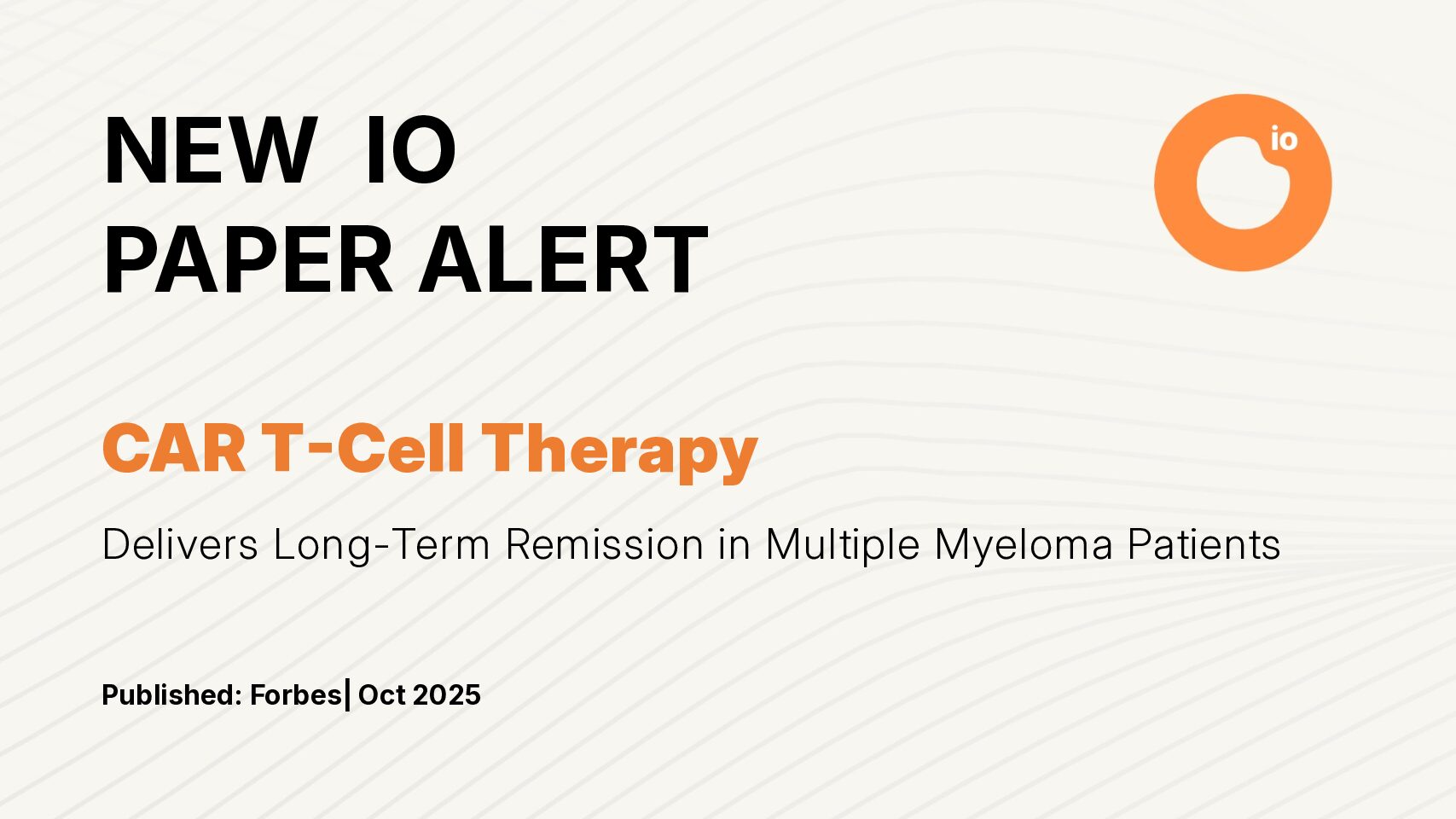Multiple myeloma is a hematologic malignancy historically associated with repeated cycles of relapse and remission, with survival for relapsed/refractory patients often measured in months. While newer drugs have extended survival, the disease has almost always returned. Advances in cellular immunotherapy, particularly CAR T-cell therapy, are now redefining expectations.
Title: New Immunotherapy Treatments For Myeloma Show Positive Results
Author: William A. Haseltine, Ph.D.
Published in: Forbes, October 1, 2025

Ciltacabtagene autoleucel (cilta-cel), a BCMA-targeted CAR T-cell therapy, reprograms a patient’s own immune cells to selectively recognize and destroy myeloma cells. A single infusion has the potential to induce deep, durable responses.
Methods
In this study, patients with relapsed or refractory multiple myeloma who had exhausted standard therapies received a single infusion of ciltacabtagene autoleucel (cilta-cel) after lymphodepletion. They were followed for more than five years to assess overall survival, progression-free survival, and durability of remission.
Safety monitoring focused on cytokine release syndrome and neurological events, which were managed according to established protocols. Outcomes were analyzed across subgroups, including older patients and those with high-risk disease, to evaluate both efficacy and broad applicability of the treatment.
Study Design
- Population: Patients with relapsed or refractory multiple myeloma, many heavily pretreated.
- Treatment: One infusion of cilta-cel following standard lymphodepletion.
- Follow-up: >5 years.
- Endpoints: Long-term remission, overall survival, safety.
Results
The results of the study demonstrated unprecedented long-term outcomes for patients with relapsed or refractory multiple myeloma treated with cilta-cel. At five years, nearly half of the patients remained alive, and about one-third were still in remission, with many showing no detectable disease. The median overall survival exceeded five years, while the median progression-free survival approached four years—figures that stand in stark contrast to the historical expectation of less than one year for similar heavily pretreated patients. The safety profile of cilta-cel was similar to other CAR T-cell therapies. The most common side effects included:
- Cytokine release syndrome (CRS): usually within the first days after infusion, treatable with supportive care.
- Neurological toxicities: such as confusion, tremors, or headaches, generally manageable and reversible.
Most side effects occurred early, were well controlled with medical care, and resolved without long-term consequences. Importantly, no new safety issues were observed during extended follow-up.
Key Findings
A single infusion of cilta-cel has shown the ability to deliver long-term remission in patients with advanced multiple myeloma, marking a significant shift in the treatment landscape. The survival outcomes achieved represent an unprecedented improvement compared with historical expectations, where heavily pretreated patients typically lived less than a year.
Importantly, the benefits were not limited to select groups but extended to older adults, individuals with high-risk disease, and those who had undergone multiple prior therapies. Nonetheless, relapses still occurred in some patients, highlighting the continued need for reliable biomarkers to predict response and for combination strategies that could further enhance the durability of remission.
Key Takeaway Messages
- Durable remission is now possible in relapsed/refractory myeloma with CAR T-cell therapy.
- Cilta-cel demonstrates broad applicability, even in high-risk populations.
- Side effects remain manageable and mostly limited to the acute treatment phase.
- These results highlight a transformative shift in the management of multiple myeloma, with cellular therapies poised to change long-term outcomes.
You can read the full article here.
